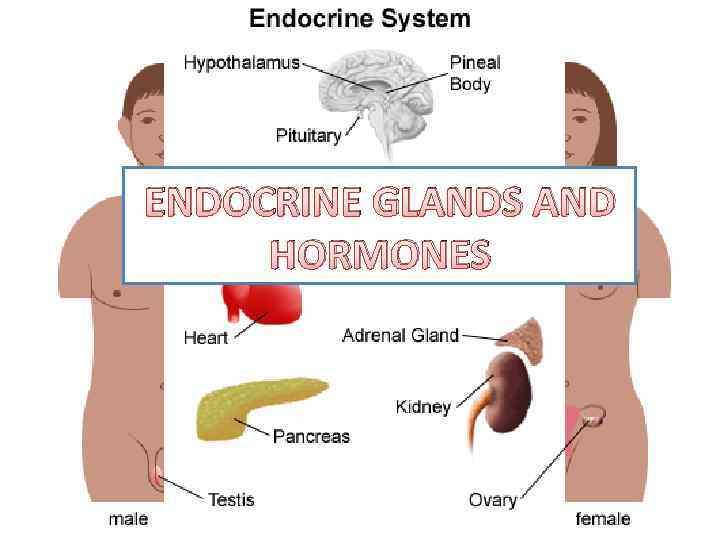In medical terminology, the hormonal system is also known as the endocrine system. Just like the nervous system, the endocrine system is also the main communicator in the body but this system uses the blood vessels for the transmission of the hormones to the specified cells. The endocrine glands are responsible for the proper functioning of all cells and organs of the body.
Endocrine Glands
Functions of Endocrine Glands and Hormones
This system is comprised of the various glands and is responsible for the release of different hormones. The endocrine glands influence the growth, metabolism, reproduction, homeostasis, response to stimuli and many other activities. The endocrine glands include the various glands such as the hypothalamus, testes, ovaries, thymus, adrenal glands, pancreas, thyroid, parathyroid, and the pineal glands. These glands produce different hormones and evoke the specific response in the cells, tissues, and organs throughout the body. These hormones quickly reach the faraway targets by moving in the bloodstream.
Hypothalamus: It works to connect the endocrine system with the nervous system. Its main function is to stimulate the pituitary glands to start making the hormones or stop the making of hormones.
Pituitary Glands: This is the master gland of the endocrine system. It makes various hormones, including the growth hormones, prolactin, luteinizing hormones which manages the testosterone levels in the men and estrogen level in the women.
Pineal Gland: This gland is responsible for the formation of melatonin and helps to body to sleep well.
Thyroid Gland: This gland is responsible for making the thyroid hormone that is specialized for controlling the metabolism of the body. Due to the improper functioning of this gland, one may feel the slower heartbeat and may get constipation, and gain in weight.

Parathyroid: It is found behind the thyroid and consists of the set of the four small glands. They play a significant role in bone health by controlling the level of calcium and phosphorus.
Pancreas: It is an important part of both endocrine, and the digestive system. It is responsible for making the enzymes which then favors the breaking down of the foodstuff. It also synthesizes the insulin and the glucagon hormones which ensures the right amount of sugar level in the bloodstream.
Adrenal Glands: It is responsible to make the adrenaline/epinephrine hormone. It also synthesizes the corticosteroids which affect sexual functioning and metabolism.
Ovaries and Testes: Ovaries make the estrogens and the progesterone in the women. At puberty, they also develop the breasts and support pregnancy by regulating the menstrual cycle. While testes make testosterone in man and develop the facial hair and play a role in making of sperms.